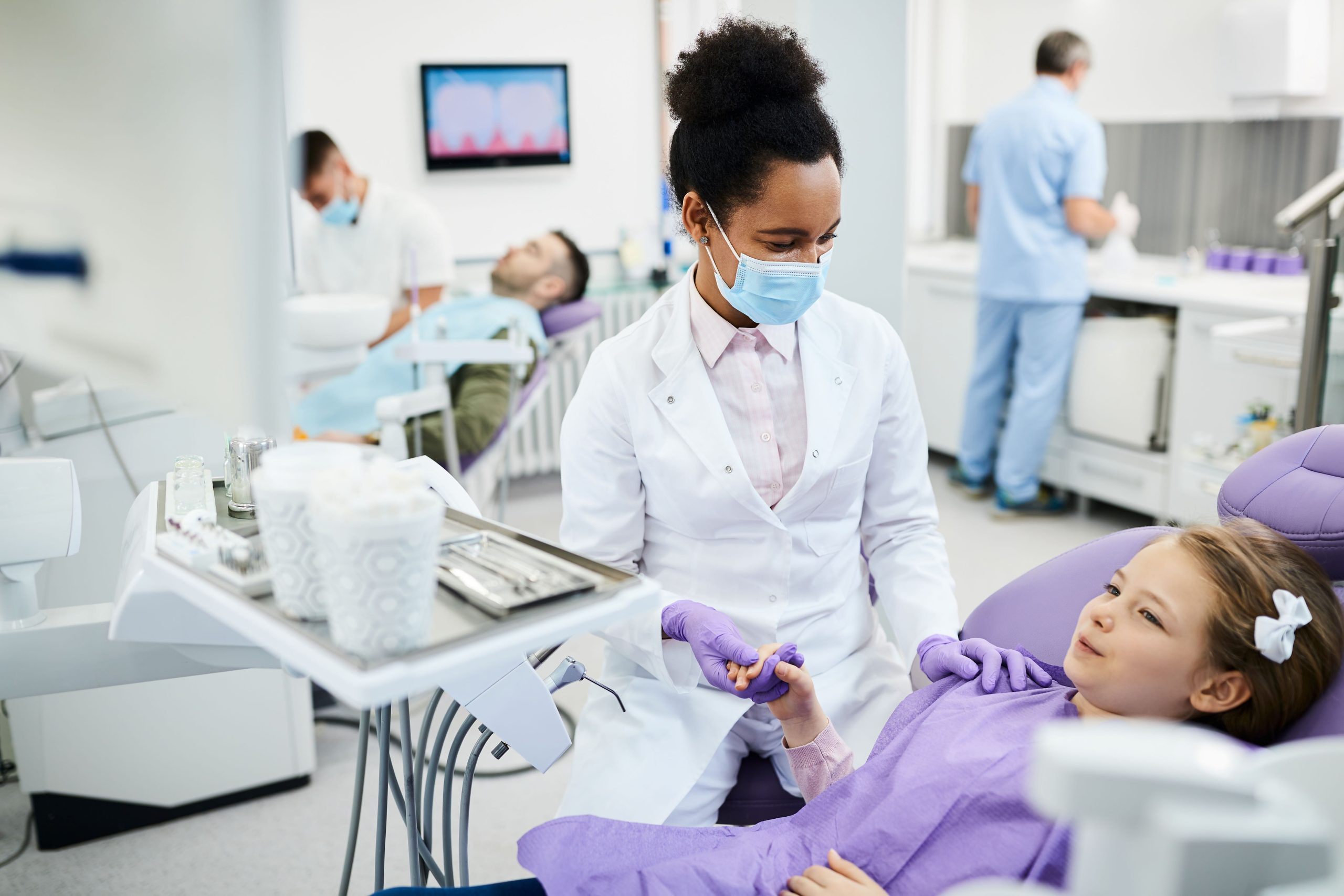Are you considering dental implants but worried about the healing process? A smooth dental implant recovery is essential for the long-term success of your implants.
Losing teeth can be distressing. Although dental implants offer a long-term solution to fix missing teeth, recovery post-dental implant procedure is crucial. To ensure the success of dental implants you must recover and return to your day-to-day routine as soon as possible.
The success of dental implants mainly depends on how well you maintain your oral hygiene after the procedure. The other factors are lifestyle changes that promote the healing process. In this blog, we will cover some tips and tricks that you must follow to speed up the healing process.
What Are The Different Dental Implant Recovery Stages?
Before you choose dental implants to fix your missing teeth you must understand the healing process of dental implants and choose accordingly. Let us now understand the different stages of healing.
Initial Stage:
The initial healing phase generally starts soon after you get an implant and may last 1-2 days. During initial healing, you may experience mild pain and swelling, and the implant site may appear flushed and hot. However, it subsides within a few days and is easily manageable with the help of medicines.
During this stage, you must avoid crunchy, chewy, hard, hot, and cold food. However, you can have liquids like freshly pressed juice, soup at room temperature, and milk.
Soft tissue healing stage:
The soft tissue healing stage begins soon after the procedure and may last for two or three weeks. During soft tissue healing you can have soft foods like soup, fish, and pasta. During the initial days of soft tissue healing, you may feel that your gums are sore and tender. Once the gum tissues start to heal the incision at the implant site will begin to close.
During this phase your doctor will ask you to avoid brushing, however, he/she may advise you some mouthwash that helps to maintain your oral hygiene.
Osseointegration:
Osseointegration is the stage when the dental implant begins to unite with the bone. It may take 3-6 months to complete this phase of healing. This is a crucial stage that determines the dental implant’s stability and durability
To ensure that osseointegration happens fast your dentist might coat the dental implant with ECM proteins. ECM proteins are known to accelerate the osseointegration process. [1]
Restoration:
Once the implant has fused completely with the jaw bone your dentist will place a crown, bridge, or denture over your implants. During this stage, your dentist helps to restore your lost full-tooth smile.
What Are The Different Factors That Affect The Recovery Time Of Dental Implants?
Healing is one of the major factors that affects the recovery time of dental implants. However, healing also gets affected by several factors:
Oral Health:
People who have poor oral health can experience delayed healing. This is true when you develop recurrent oral infections.
Smoking:
Smoking reduces blood flow in the gums which delays healing. Dental implants can also fail if you smoke.
Type of surgery:
Generally, the healing time for a single tooth implant is less than for multiple tooth implants. Also if you have undergone bone grafting to improve your jaw bone health your healing time will increase further.
Age:
The healing time for older adults is greater than for young individuals. This is mainly because the body’s response to inflammation delays with time.
Overall health condition:
Generally, healing is delayed in people having ailments like diabetes, and protein energy malnutrition. Also, healing is delayed in obese people.
Medications:
Certain medications like steroids, NSAIDs, Chemotherapy, and radiation therapy delay healing.
What are the things you should do and avoid to improve your tooth implant recovery time?
Taking care of your dental implant after the procedure as the proper aftercare decreases the risk of implant failure. Things you must consider include:
Take Care Of Your Oral Hygiene:
Brush your teeth twice every day. Also, floss your teeth once every day and use mouthwash to maintain optimal oral health.
Watch What You Eat:
Your doctor will suggest you take a liquid diet for at least 24 hours after the procedure. After 24 hours you can have soft foods like pasta, fish, mashed potatoes, and soft fruits like bananas. Foods that are hot, crunchy, chewy, acidic, or spicy should be avoided.
Address Common Dental Implant Complications:
You must address and know how to manage common dental implant complications like minor bleeding, and swelling. By applying a bit of pressure you can manage mild oral bleeding whereas you can use an ice pack to manage swelling. However if there is heavy bleeding or you experience signs of infection like fever, extreme pain, or discharge from the implant site please consult your dentist.
Eat Nutritious Food:
Incorporate green leafy vegetables, fish, and legumes into your diet as the nutrients present in these foods play a crucial role in healing.
Apart from eating nutritious food, you must also ensure to keep yourself hydrated. Dehydration increases the risk of infection. Infection can delay healing. So you must ensure to take plenty of healthy fluids.
Visit your dentist as advised:
Visit your dentist as advised by your doctor. Also in case you experience severe pain, bleeding or any abnormal discharge please see your doctor at the earliest.
Take Rest:
Resting helps your body to heal. Apart from resting you must avoid doing strenuous exercise soon after getting dental implants. However, you can try light exercises like walking. Light exercises help to increase blood flow which will enhance healing. Whereas doing strenuous exercises soon after getting a dental implant increases the risk of dental implant failure.
Conclusion:
Recovery from dental implants requires proper care. To achieve the desired outcome of your dental implant procedure you must ensure to follow your doctor’s instructions, maintain good oral health, eat soft food, avoid strenuous exercise, keep yourself hydrated, and get enough rest.
You must also understand that healing post-dental implant procedure takes place under different stages. You must ensure that you take care of your dental implant considering every stage. In case of any emergency do contact your dentist.
If you are not sure about finding the right dentist for you to get dental implants do visit us. We will help you find the best dentist near your vicinity.
FAQ:
- What is the healing time for dental implants?
It generally takes about 6 months to a year to heal completely after getting dental implants. However, this time can vary depending on various factors like your age, the number of dental implants you want to get, your overall health condition, and your lifestyle.
- Recovering from dental implants: How long does it take?
The soft tissues generally take about 2-4 weeks to heal. However, it takes about 6 months to a year to recover from the overall procedure.
- What To Expect After Dental Implant Surgery?
Soon after dental implant surgery, you can experience mild pain and swelling. However, it may take a few days for the pain and swelling to subside after the procedure.






